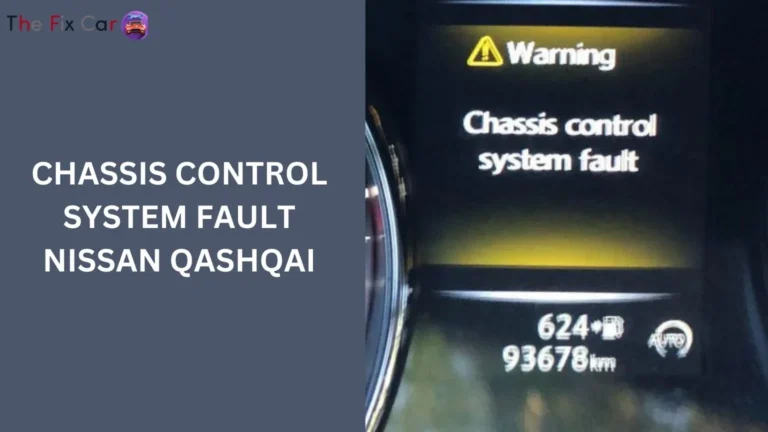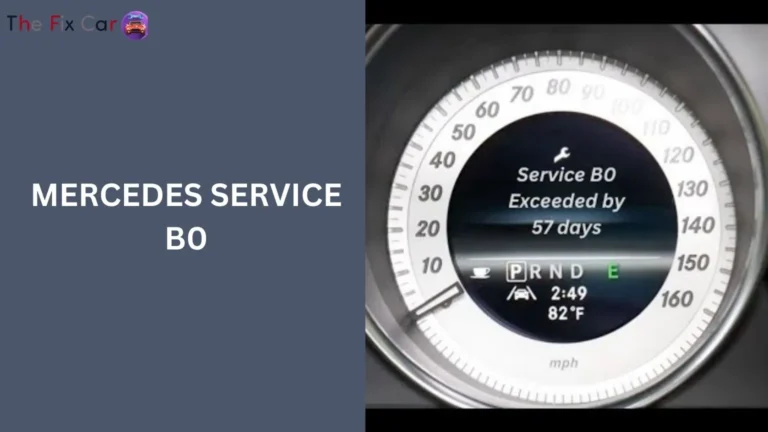Parking Brake Malfunction Audi (Causes and Fixing) of 2024
Ah, the parking brake! Often overlooked, this crucial component is essential for keeping your Audi stationary when parked. But what happens when this system doesn’t work as it should?
Parking Brake Malfunction Audi, In this guide, we’ll dive deep into what causes parking brake malfunctions in Audi vehicles, how to spot the signs, and what you can do to fix and prevent these issues. Buckle up, and let’s get started!
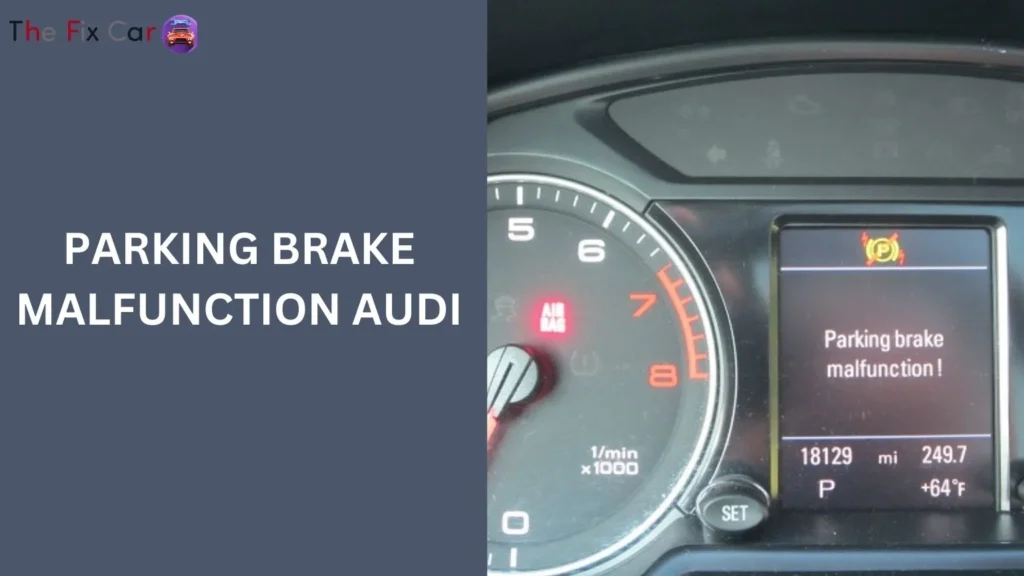
What is a Parking Brake?
The parking brake, also known as the handbrake or emergency brake, is a crucial safety feature in your Audi. It’s designed to keep your car stationary when parked, preventing it from rolling away, especially on slopes.
Unlike the regular brakes that work with hydraulic pressure, the parking brake operates mechanically or electronically.
How Does the Parking Brake Work?
In traditional setups, the parking brake is activated by pulling a lever or pressing a pedal. This action pulls a cable connected to the brake mechanism on the rear wheels, applying pressure and keeping the car in place.
Modern Audi vehicles often use an electronic parking brake system, activated by a button, which sends a signal to the Electronic Control Unit (ECU) to engage the brakes.
Types of Parking Brakes in Audi Vehicles
Audi vehicles typically come with either manual handbrakes or electronic parking brakes. The electronic systems are more common in newer models, offering the advantage of automatic engagement and integration with other safety systems like Hill Start Assist.
Common Symptoms of Parking Brake Malfunction Audi
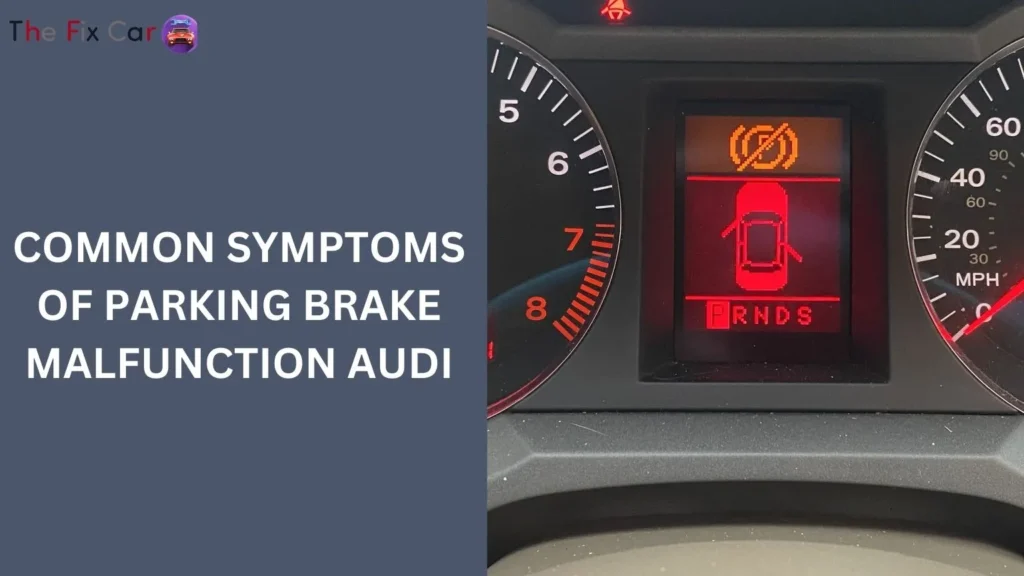
A malfunctioning parking brake can compromise vehicle safety. Recognizing the symptoms early can help you address the issue before it becomes a serious problem.
Warning Lights on the Dashboard
One of the most noticeable signs of a parking brake malfunction is the illumination of warning lights on your dashboard. If you see the brake warning light or a specific parking brake malfunction indicator, it’s a clear sign that something is wrong.
Unusual Noises When Engaging the Parking Brake
If you hear grinding, squealing, or any other unusual noises when engaging or releasing the parking brake, it could indicate worn-out components or a mechanical issue that needs attention.
Inability to Release the Parking Brake
If your parking brake gets stuck and you can’t release it, your vehicle may be immobilized. This can be due to mechanical failure, electrical issues, or corrosion within the system.
Causes of Parking Brake Malfunction in Audi
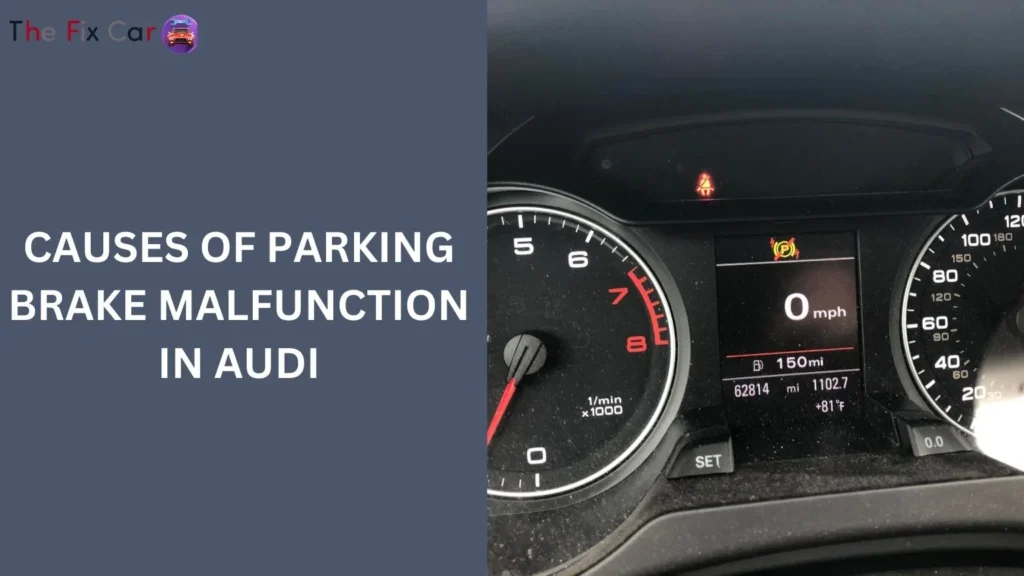
A malfunctioning parking brake can be a hassle and compromise your safety. Understanding the common causes can help you troubleshoot and fix the issue effectively.
Electronic Control Unit (ECU) Issues
The ECU is the brain of your vehicle’s electronic systems, including the parking brake. A malfunctioning ECU can lead to erratic parking brake behavior, including failure to engage or release properly.
Worn Out Brake Components
Over time, the components of your parking brake system, such as cables, pads, and calipers, can wear out. This wear and tear can reduce the effectiveness of the parking brake and cause it to malfunction.
Faulty Parking Brake Switch
In vehicles with electronic parking brakes, the switch used to engage and release the brake can fail. A faulty switch can prevent the system from functioning correctly.
Corrosion and Rust
Corrosion and rust can affect the mechanical parts of the parking brake system, particularly in older vehicles or those exposed to harsh weather conditions. Rust can cause components to seize or not function smoothly.
Diagnosing Parking Brake Malfunction
Diagnosing a parking brake malfunction is crucial for ensuring your vehicle’s safety. Here’s a step-by-step guide to help you identify and address the issues effectively.
Using an OBD-II Scanner
An OBD-II scanner can help diagnose electronic issues related to the parking brake. By reading the error codes stored in the vehicle’s ECU, you can identify specific problems and address them accordingly.
Visual Inspection
Performing a visual inspection of the parking brake system can help identify obvious issues such as worn-out cables, rust, or damaged components. Look for any signs of wear and tear or corrosion that could affect the brake’s performance.
Professional Diagnosis at a Service Center
For a thorough diagnosis, it’s best to take your Audi to a professional service center. Technicians have the expertise and equipment to accurately diagnose and fix parking brake issues, ensuring your vehicle’s safety and reliability.
Fixing Parking Brake Malfunction
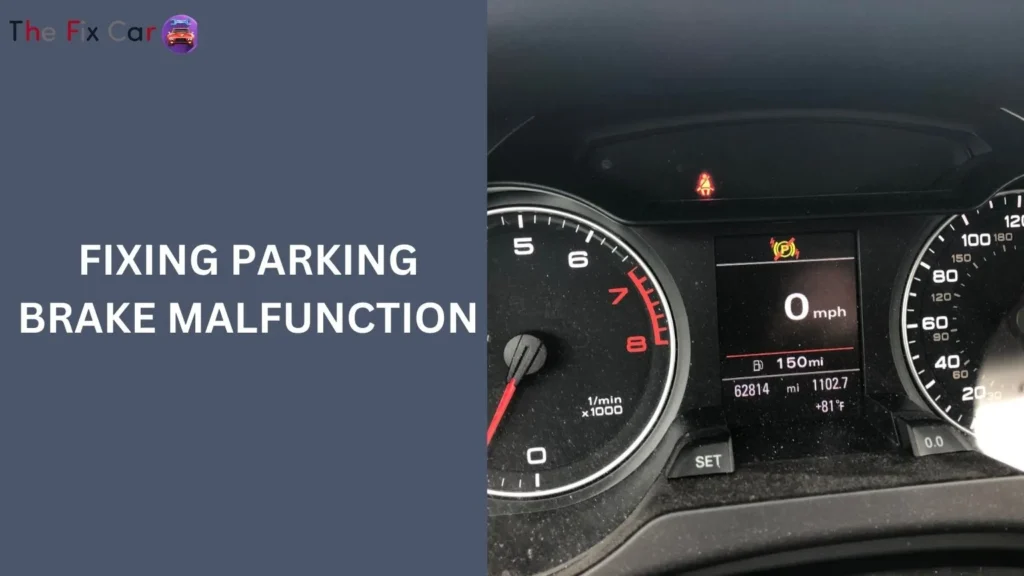
Addressing a parking brake malfunction promptly is crucial for your Audi’s safety and performance. Here’s a guide on how to fix common parking brake issues, ranging from simple DIY fixes to situations requiring professional help.
Resetting the Parking Brake System
Sometimes, a simple reset can fix minor electronic glitches. This can be done by disconnecting and reconnecting the battery or using a diagnostic tool to reset the system. However, this is a temporary fix and the underlying issue should be addressed.
Replacing Faulty Components
If specific components like cables, switches, or calipers are worn out or damaged, they need to be replaced. Using high-quality replacement parts is essential to ensure the long-term functionality of the parking brake system.
Regular Maintenance and Inspection
Regular maintenance and inspection of the parking brake system can help prevent malfunctions. This includes checking for wear and tear, lubricating moving parts, and ensuring the system is free from rust and corrosion.
Preventing Future Parking Brake Issues
Maintaining your parking brake system is essential for your Audi’s safety and performance. Regular upkeep can prevent malfunctions and ensure the brake operates smoothly. Here are some preventative measures to keep your parking brake in top condition.
Regular Maintenance Checks
Routine maintenance checks can help identify and fix issues before they become major problems. Make it a habit to have your parking brake system inspected during regular service appointments.
Keeping the Brake Components Clean
Keeping the brake components clean and free from debris can prevent corrosion and ensure smooth operation. Regular cleaning, especially after driving in harsh conditions, can extend the life of your parking brake system.
Addressing Issues Promptly
If you notice any signs of parking brake issues, address them promptly. Ignoring minor problems can lead to more significant issues and costly repairs down the line.
People also ask
What does it mean when it says parking brake malfunction?
When your Audi displays a “parking brake malfunction” message, it indicates an issue with the parking brake system.
This can mean the brake is not engaging or releasing properly, the brake pads are worn, there are issues with the brake cables, or there is a problem with the electronic components of the brake system.
Immediate attention is required to diagnose and fix the issue to ensure your vehicle’s safety.
Why does my Audi say parking brake malfunction?
Your Audi says “parking brake malfunction” to alert you of a problem with the parking brake system.
This could be due to worn brake pads, damaged cables, hydraulic issues, or electrical failures.
It’s important to address the warning promptly to ensure the brake system operates correctly and your vehicle remains safe.
Can I drive my car with a parking brake malfunction?
Driving with a parking brake malfunction is not recommended. It compromises your vehicle’s safety and could lead to further damage.
Address the issue as soon as possible to ensure proper brake function and avoid potential hazards.
How to reset the electronic parking brake, Audi?
To reset the electronic parking brake in an Audi:
Turn on the Ignition: Ensure the vehicle is in the “On” position.
Press the Brake Pedal: Firmly apply the brake.
Activate the Parking Brake: Engage and then release the parking brake using the switch.
Check for Error Messages: Confirm that the malfunction indicator has cleared from the dashboard.
Conclusion
A Parking Brake Malfunction Audi is more than just an inconvenience—it’s a safety concern. By understanding the symptoms, causes, and solutions for parking brake malfunctions, you can ensure your vehicle remains safe and reliable.
Regular maintenance and prompt attention to issues can keep your parking brake system in top condition, providing peace of mind every time you park your car.

